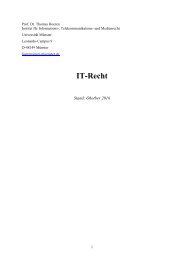3d4yVkKMl
3d4yVkKMl
3d4yVkKMl
Create successful ePaper yourself
Turn your PDF publications into a flip-book with our unique Google optimized e-Paper software.
- 22 -<br />
Maritime Dispute case, “the task of delimitation consists in resolving the overlapping claims by<br />
drawing a line of separation between the maritime areas concerned” (Territorial and Maritime<br />
Dispute (Nicaragua v. Colombia), Judgment, I.C.J. Reports 2012 (II), pp. 674-675, para. 141).<br />
There are no overlapping claims of the Parties to the present proceedings which may render<br />
reservation (b) applicable.<br />
40. Moreover, it is significant that Australia alleges that Japan has breached certain<br />
obligations under the ICRW and does not contend that JARPA II is unlawful because the whaling<br />
activities envisaged in the programme take place in the maritime zones over which Australia asserts<br />
sovereign rights or in adjacent areas. The nature and extent of the claimed maritime zones are<br />
therefore immaterial to the present dispute, which is about whether or not Japan’s activities are<br />
compatible with its obligations under the ICRW.<br />
41. The Court therefore concludes that Japan’s objection to the Court’s jurisdiction cannot be<br />
upheld.<br />
II. ALLEGED VIOLATIONS OF INTERNATIONAL OBLIGATIONS<br />
UNDER THE CONVENTION<br />
A. General overview of the Convention<br />
1. Introduction<br />
42. The present proceedings concern the interpretation of the International Convention for<br />
the Regulation of Whaling and the question whether special permits granted for JARPA II are for<br />
purposes of scientific research within the meaning of Article VIII, paragraph 1, of the Convention.<br />
Before examining the relevant issues, the Court finds it useful to provide a general overview of the<br />
Convention and its origins.<br />
43. The ICRW was preceded by two multilateral treaties relating to whaling. The<br />
Convention for the Regulation of Whaling, adopted in 1931, was prompted by concerns over the<br />
sustainability of the whaling industry. This industry had increased dramatically following the<br />
advent of factory ships and other technological innovations that made it possible to conduct<br />
extensive whaling in areas far from land stations, including in the waters off Antarctica. The<br />
1931 Convention prohibited the killing of certain categories of whales and required whaling<br />
operations by vessels of States parties to be licensed, but failed to address the increase in overall<br />
catch levels.<br />
This increase in catch levels and a concurrent decline in the price of whale oil led to the<br />
adoption of the 1937 International Agreement for the Regulation of Whaling. The preamble of this<br />
Agreement expressed the desire of the States parties “to secure the prosperity of the whaling<br />
industry and, for that purpose, to maintain the stock of whales”. The treaty prohibited the taking of<br />
certain categories of whales, designated seasons for different types of whaling, closed certain



